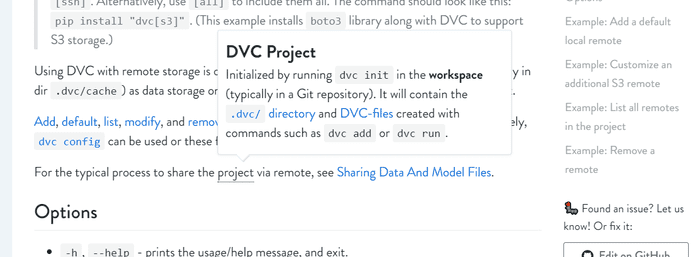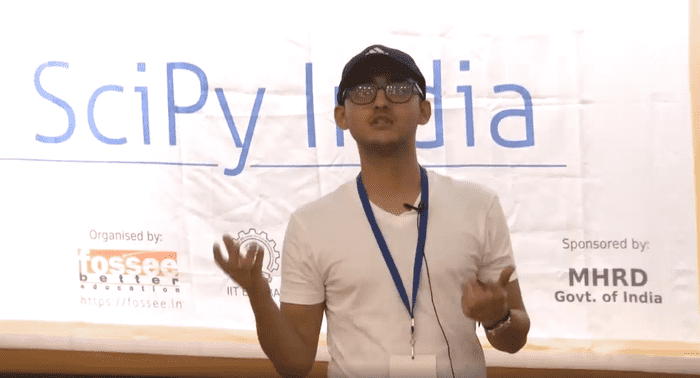Join DVC for Google Season of Docs 2020
DVC is looking for technical writers to take part in Google Season of Docs 2020 — a unique program sponsored by Google that pairs technical writers with open source projects. In this post we introduce our goals for the program, and specific project ideas for potential candidates.
After a successful experience with the first edition of Google Season of Docs in 2019, we're putting out a call for writers to apply to work with DVC as part of the 2020 edition. If you want to write open source software documentation with mentorship from our team, read on.
TLDR: Skip to project ideas.
DVC has a dedicated docs team and a well-defined process for creating and maintaining our documentation, modeled in part based on our past GSoD experience. We are happy to share our experience, introduce technical writers to the world of open source and machine learning best practices, and work together on improving our documentation.
Previous experience
In last year's Season, we matched with prolific writer Dashamir, who helped us give proper structure important part of our docs, and address key issues.
As #GSoD2019 is officially over we would like to thank @dashohoxha for contributing online interactive tutorials https://t.co/iZKkqmx5pm (👈 link or search for Katacoda button on https://t.co/b8MwcZdY3s) 😍 Thank you @GoogleOSS team and @chenopis for organizing this 🙏! pic.twitter.com/SGrgtA5J0B
— 🦉DVC (@DVCorg) December 12, 2019
Some of our achievements together were:
- Reorganized our tutorials and core contribution guide
- Created interactive lessons on Katacoda
- Docs cleanup
- Suggested the creation of a How To section for our docs
- Other contributions
Another collaborator we connected with via GSoD’19 was an amazing student intern, Aman. He helped us address dozens of tickets related to our Node.js docs web app. For example:
- Contributed to our command reference and user guide, and created a much needed documentation contribution guide
- Formatted the source code of our docs and established an automated mechanism to enforce pretty formatting going forward
-
Implemented super useful hovering tooltips based on a special glossary:

dvc remotecommand reference
Community outreach
More positive results of the program included talks and meetups organized by our open source contributors, with our mentorship:

Another star contributor who found our project via GSoD, Kurian, closed several tickets, produced a DVC intro tutorial in Kaggle and Colab, and ended up giving a talk in PyCon India:
He also covered DVC for the Devsprints of MEC.conf
Thank you @DVCorg for participating in the Devsprints, by @FossMEC and @excelmec. We had @shcheklein who joined us all the way from SF and explained how open source is boosting the future. Srinidhi and @kurianbenoy2 helped participants get started to contributing to the project.
— FOSS MEC (@FossMec) November 8, 2019
Yet another outstanding contributor, Nabanita, ended up organizing a DVC-themed hackathon later that year:
Our open source event Hacktoberfest-themed meet-up was a success. Thanks to @DVCorg and it's mentors for all the hard work.
— Programming Society IIIT-Bh (@psociiit) October 18, 2019
Some of our attendees made their first PR on DVC and got them merged. Kudos to the team!
PS: 🍕 was the second best thing of the evening. pic.twitter.com/zAWC0TVlPd
Prerequisites to apply
Besides the general requirements to apply to Google Season of Docs, there are a few skills we look for in applicants.
- Clear English writing. We strive express the concepts, processes, and details around DVC clearly, correctly, and completely. We use general and friendly wording as much as possible and pay close attention to consistency in our terminology. Our team will help with copy editing.
- Command line experience. DVC is a command line tool that builds on top of Git, so being able to play with it and test the features will be very useful. Creating and managing files, GNU/Linux commands, file and permission administration are desired skills.
- People skills. We put a high value on communication: the ability to discuss ideas, explain your goals, report progress, and work kindly with more or less technical teammates.
If you like our mission but aren't sure if you're sufficiently prepared, please be in touch anyway. We'd love to hear from you.
Project ideas
Below are several project ideas that are an immediate priority for the DVC docs team. We welcome technical writers to create their own proposals, even if they differ from our ideas. Most projects will be mentored primarily by our lead technical writer, Jorge.
-
"How To" section. Other than our use cases, we still lack a good place to answer common questions in our docs (think FAQ). We have compiled set of topics that we think would be best explained in a new How To section for this purpose.
This project would imply relocating bits and pieces of info from existing docs into new how-tos, as well as writing significant new material to complete them. Expanding on our troubleshooting page would probably go well as part of this project as well.
Difficulty rating: Beginner-Medium
-
DVC 1.0 docs. We are soon to release DVC 1.0.0! This version brings some significant changes that for the first time in our release history are not completely backward-compatible. We expect that fully updating all our previous docs will take a few months, and you could help us with this! The main new features are listed below.
UPDATE: See post about the release! And corresponding docs epic task
- A multi-stage pipelines file that partially substitutes DVC-files
- Separation between
scalar vs. continuous metrics,
and new commands to visualize them, such as
dvc plots - A new run cache that automatically saves experiment checkpoints between commits
Difficulty rating: Beginner-Medium
-
Video tutorials. Written documentation is great, but other media can also be important for our organization to reach a wide variety of learners. Expanding to video is also a core part of our developer advocacy strategy.
One of DVC's priorities for this year is creating a library of video tutorials ranging from short explanations of basic DVC functions to more advanced use cases. You could assist in writing the scripts or even take the lead producing some videos, so image/video editing skills would come in handy (optional).

Mentor: Elle
Difficulty rating: Beginner-Medium
-
Interactive guides. Many of our docs include command line examples to illustrate how DVC works. In some cases these are full guides we want people to be able to follow by copying commands into their terminals. This has a few challenges: mainly keeping the rest of the document maintainable, brief, and easy to read; and supporting people on all platforms (Mac, Windows, Linux).
So we started extracting some of the command examples into interactive Katacoda scenarios to match certain docs, however they are in need of maintenance and completion, as well as being embedded into the corresponding pages per this issue.
This may involve working with our front-end team or, preferably, having some Javascript coding experience.
Difficulty rating: Medium-Advanced
-
Javascript engine UI/UX. Our website has custom source code we've developed over the years to host our landing pages, docs, and blog all in a high-performance, advanced static site (Node.js, Gatsby, React, Typescript). We have several goals to further improve the usability and structure of our site, such as:
- Creating a special docs home page
- Improving mobile menus
- Better navigation sidebar highlighting and positioning
- Other doc-engine and blog-engine issues
Difficulty rating: Medium-Advanced
-
SEO/ Site Analytics. Our current website analytics are somewhat basic. We will need to have a clear strategy to follow and improve our Search Engine results (with meta content, media optimization, etc.), as well as to understand the behavior of our users to improve their experience. The specifics of the project are left for the applicant to suggest! This should be relatively simple for someone with proven experience in SEO or website QA.
What tools should we employ? (e.g. Google Analytics, etc.) What trends and reports do we need to focus on? What kinds of users do we have and what interaction flows do they each follow? Can we semi-identify these users and/or cross-examine their data with DVC usage analytics? Let's come up with a plan to answer these and other related questions!
Difficulty rating: Beginner-Medium
For more inspiration, feel free to review our epics and other open docs issues.
If you'd like to apply
Please refer to the Google Season of Docs application guides for specifics of the program. Writers looking to know more about DVC, and our worldwide community of contributors, will learn most by visiting our Discord chat, GitHub repository, and Forum. We are available to discuss project proposals from interested writers and can be reached by email or on Discord.